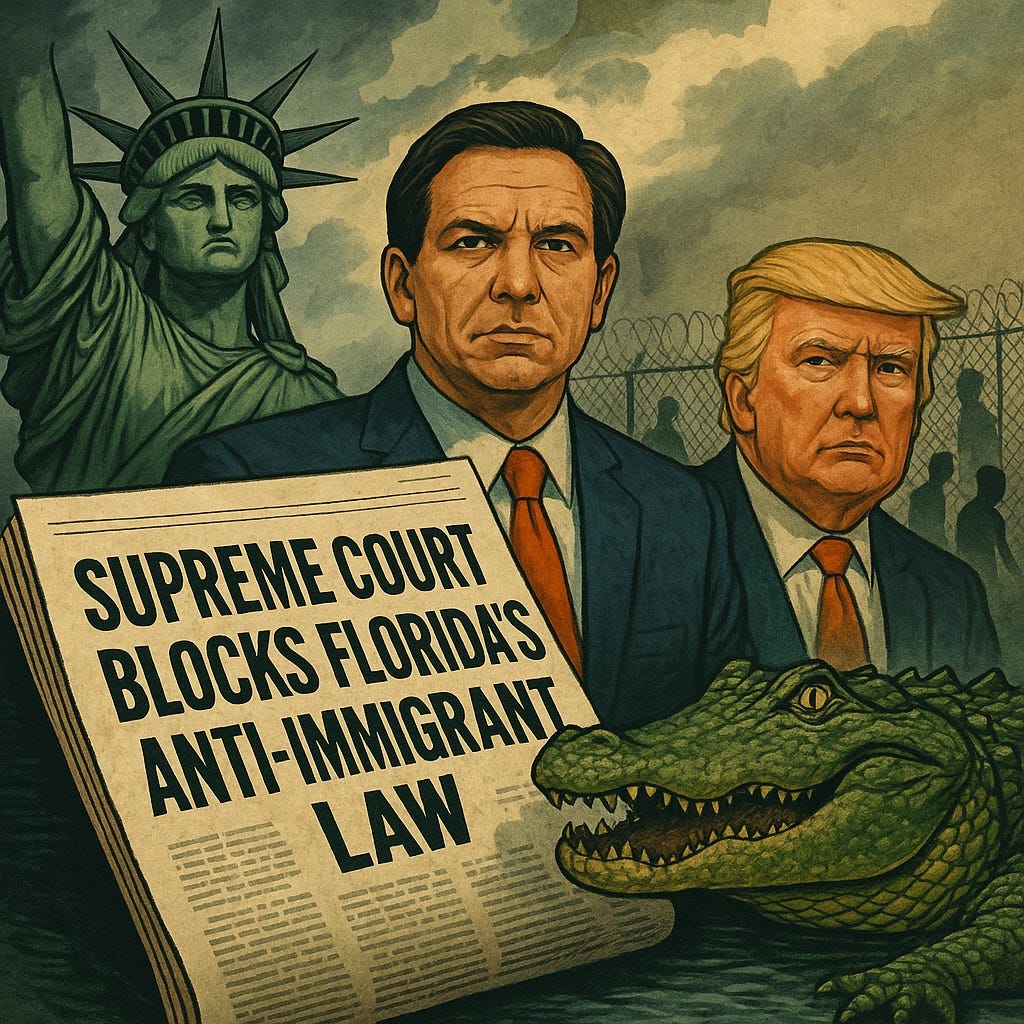By Jerrod Zisser
WHAT HAPPENED:
The U.S. Supreme Court has blocked Florida from enforcing a sweeping anti-immigrant law that would have made it a crime for undocumented immigrants to enter the state. The Republican-backed law, signed by Governor Ron DeSantis, is now on hold as a federal court reviews its constitutionality.
Florida’s Attorney General, James Uthmeier, filed an emergency request to the Supreme Court after U.S. District Judge Kathleen Williams ruled the state law likely violates the Constitution by intruding on the federal government’s exclusive authority over immigration. The Supreme Court rejected the state’s request in a brief order with no dissents.
WHY IT MATTERS:
This ruling reaffirms a core principle of U.S. law: immigration is a federal matter, not something individual states can control. The ACLU, which brought the case on behalf of impacted immigrants and advocacy groups, said the decision protects basic constitutional rights.
Despite the setback, Florida officials—backed by Trump’s administration and conservative legal groups—remain determined to enforce their law, raising fears that other states may attempt similar measures.
WHAT TO WATCH FOR:
Florida is continuing to build and promote massive new detention facilities, including the $450 million “Alligator Alcatraz” complex visited by Trump and DeSantis on July 1. The broader political fight over immigration enforcement is central to Trump’s 2025 re-election platform and is likely to return to the Supreme Court.
BOTTOM LINE:
The Supreme Court’s decision is a temporary but important win for immigrant rights. It underscores the constitutional limits of state power in immigration enforcement. But the political push for harsh state-level immigration crackdowns is not going away—and could intensify in the months ahead.
FULL STORY + DAILY UPDATES:
Follow me on Instagram and Substack for in-depth coverage and real-time updates on this and other critical stories.














Share this post